Lawmaker Warns Of Bread, Gas Shortage In Restive Iran Province

An Iranian member of parliament from Sistan-Baluchestan province has criticized bread and gasoline shortages, reporting long queues at gas stations and bakeries.

An Iranian member of parliament from Sistan-Baluchestan province has criticized bread and gasoline shortages, reporting long queues at gas stations and bakeries.
ISNA news agency in Tehran quoted Abdol Naser Derakhshan Thursday as saying that the shortage of bread and gasoline in various cities of the relatively poor province has worsened during the past few days. Sistan-Baluchistan in the southeast has a large Baluch ethnic population who are mostly Sunni.
On Sunday, Ismail Hosseinzahi, representative of Khash in parliament also said that the people of Sistan-Baluchistan stand in queues for bread almost three hours and the fuel queues reach three kilometers.
In response to criticisms, the general manager of grains department of the province denied the "shortage of flour" saying that long queues to buy bread are only formed at weekends as people worry about regular protest on Fridays.
Baluch citizens and activists believe the shortages are systematic and aimed at increasing pressure on people due to their weekly protests within the past thirteen weeks.
The Sunni population of the provincial capital Zahedan have been holding antigovernment rallies for more than 3 months. On September 30, security forces opened fire on civilians killing more than 93 protesters and onlookers.
They say pressures have increased in the past two weeks after the appointment of Mohammad Karami, a senior IRGC commander as governor of Sistan-Baluchestan.
Reports say security forces have arrested more than 100 Baluch citizens since past week on the pretext of fighting criminals and illegal foreign nationals.
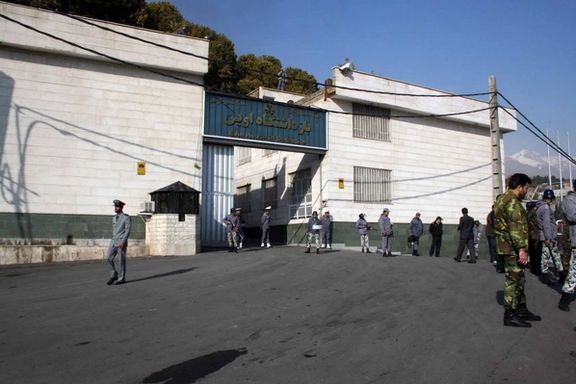
Since protests began, regime agents have arrested nearly 20,000 Iranians during or between rounds of protests, many have been released but a few died apparently with no certain reason.
Fatemeh Mohammadi, who was freed earlier in the week, was fortunate enough that she went through some detoxification process immediately after her release, but 19-year-old Yalda Aghafazli died last month after being released from prison without any medical preconditions.
At the hospital, tests indicated a significant amount of narcotics in her blood system. According to reports, many of her friends who were arrested during protests and were later released have shown similar symptoms of poisoning.
Mehdi Zare Ashkzari was an Iranian student at the University of Bologna, Italy, who had traveled to Iran for the funeral service of his mother. He was arrested during the Iranian protests and fell into a coma after release and died 20 days later this week. In his case, reports say he had suffered intense tortures.
Some of those who die after time in prison commit suicide. There are allegations that most of the detainees were force-fed heavy doses of drugs during the days at the detention centers, that seems to heighten suicidal thoughts.
In November, Arshia Emamgholizadeh, 16, was arrested in East Azarbaijan province for tossing a turban of a cleric, which has become a new symbolic act of protest. He was kept in prison for ten days. After ten days, he was released on bail. Arshia committed suicide two days later. He had told his friends that prison authorities gave them some pills to swallow every night, as well as torturing them.
Dr. Maziar Ashrafian Bonab, UK-based forensic and medical geneticist, told Iran International in early December that there is probably no mysterious drug involved but the psychological trauma that these young adults went through made them suicidal. However, he cited some reports that said suicidal ideation heightens after intake of derivatives of potassium aspartate. Such medicine can lead to instant death in high doses and suicidal thoughts in lower doses.
He also called on all those who are released from the regime’s prisons to take blood and mineral tests as soon as they get out. According to a study at the UK and reported by the Guardian, even the happy drug Prozac class of antidepressants can make healthy men, women and children with no history of depression feel suicidal.
Some doctors believe that whatever they are taking in detention, the abrupt stop of the drug causes suicidal tendencies, because there are many psychiatric medicines that should be tapered out otherwise their withdrawals lead to serious damage.
A group of members of the medical community -- who called themselves The Physicians' Unity (Etehad Pezeshkan) -- has called on international bodies to probe the deaths of the Iranian protesters. Many people are of the opinion that the authorities are intentionally killing the protesters without actually taking responsibility for them to avoid international outcry.
Such reports about the death of prisoners after release are not limited only to the last three to four months of protests, but the frequency of such deaths has never been so high. For instance, Siavash Bahrami, a Kurdish political prisoner, died three days after his release in May 2022. Hengaw, a Norway-based rights group which monitors abuses in Kurdish areas, reported at the time that he was injected with some unknown substance in the prison.
The Islamic Republic is killing its critics in so many ways now, from shooting them on the streets to executions, torture and psychological pressure. Earlier in the week, Maryam Salimian, an Iranian painter, committed suicide after she found out at the airport that she is banned from leaving the country to pursue her passion after she was admitted to a university in Austria.
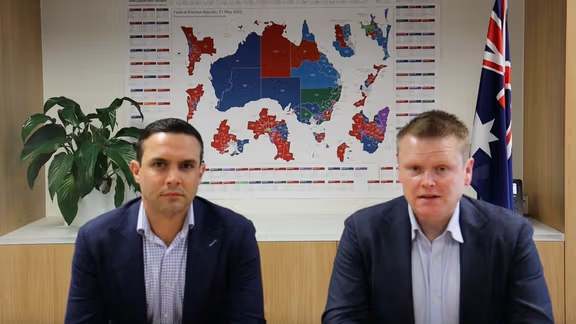
Two members of the Australian House of Representatives have called on the Islamic Republic to stop issuing death sentences for people arrested in recent protests.
In a letter to the Charge d'affaires of The Islamic Republic in Australia Tuesday, Keith Wolahan and Aaron Violi said no one should receive deaths sentence for exercising political rights.
Keith Wolahan an Aaron Violi also offered to take political sponsorship for fifteen protestors imprisoned in Iran who are facing the death sentence.
“Mohammed Mehdi Karami is only 22 years of age and has just been sentenced to death for protesting,” said Wolahan in the letter.
Wolahan also added that it was heartbreaking to hear of Karami's phone call with his father where he asked him not to tell his mother about what is just being announced.
For his part, Aaron Violi also stressed that as members of the Australian Federal parliament, he and Keith Wolahan sponsored 15 protesters for protection from the Islamic Republic regime, including Karami.
“Behind every protester that is in prison is their families that are suffering, and we are calling on the Islamic Republic regime to show mercy on these protesters and their families,” he underlined.
Earlier in November, Wolahan expressed solidarity with Iranians in their fight against clerical rule, saying that the Islamic Republic will face the consequences of mistreating protesters.
Wolahan represents the division of Menzies where the largest population of Iranians live in Australia.
Amid the protests after the death in custody of Mahsa Amini in mid-September, Iranian clerical rulers executed two anti-regime protesters namely Mohsen Shekari and Majidreza Rahnavard, both 23.

Famous Iranian actress Taraneh Alidousti has finally been released from prison on a heavy bail amid international outcry for her freedom.
The Iranian popular cinema star, who was detained three weeks ago after expressing support for nationwide protests, was freed from the notorious Evin prison in Tehran Wednesday on a bail of more than 30,000 dollars, or ten billion Iranian rials.
Photos published on social media show that she was welcomed by a group of cinema artists after the release.
Alidousti, who previously published a photo of herself without headscarf on social networks, was not wearing the mandatory hijab in these photos again.
This comes as on Wednesday Iran’s authoritarian Supreme Leader Ali Khamenei said in a meeting with a group of pro-regime women that "The hijab is undoubtedly a religious and inviolable necessity.”
Reports said that 20 days ago Taraneh Alidousti was transferred to ward 209 of Evin prison which is administered by the intelligence ministry.
The detention of Alidousti drew widespread international reactions, especially from the most prestigious film festivals in the world, such as Cannes, Berlinale, and Tribeca.
Over 600 artists around the world signed a petition urging the Islamic Republic to release the Iranian actress.
In the online campaign launched under the title "Justice for Taraneh Alidousti", dozens of the world's most prominent figures, including Mark Ruffalo, Pedro Almodovar, Penelope Cruz, Juliette Binoche, Alfonso Cuaron and Ken Loach joined the signatories.
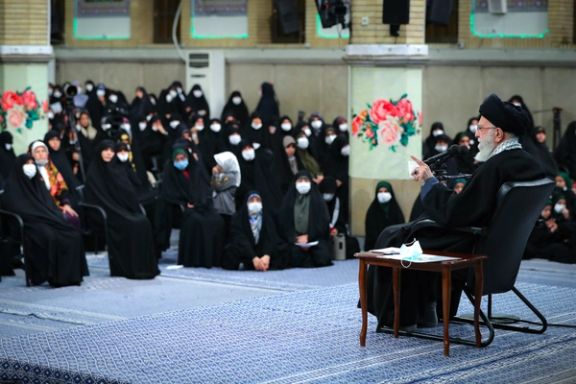
Islamic Republic’s Supreme Leader Ali Khamenei has reiterated the regime’s propaganda about the current wave of protests, failing to acknowledge women’s rebellion against hijab.
Addressing a group of cherrypicked women from his supporters on Wednesday, he rejected the facts that women are unveiling in public to defy the mandatory Islamic dress code – or hijab. It was forcible enforcement of hijab in society that triggered popular protests since September - the boldest challenge the Islamic Republic has ever faced.
“The absolute brazenness of the West comes into sight when it presents itself as the forerunner of advocacy for women’s rights, whilst it is responsible for flurries of blows dealt to the dignity and prestige of women. This could be explained as utter shamelessness... This is what they suggest by women’s rights and freedom. This is by no means freedom, but rather utter slavery,” Khamenei said.
Despite a massive number of videos and photos of women and schoolgirls unveiling and burning their headscarves in protest to the compulsory hijab as well as the clerical regime, Khamenei claimed that women did not remove their hijab during the protests.
Khamenei’s refusal to acknowledge 110 days of ongoing protests, ignited by the death of 22-year-old Mahsa Amini in the hands of hijab enforcement police, has led to an explosion of tweets and posts against him and the regime on social media Wednesday.
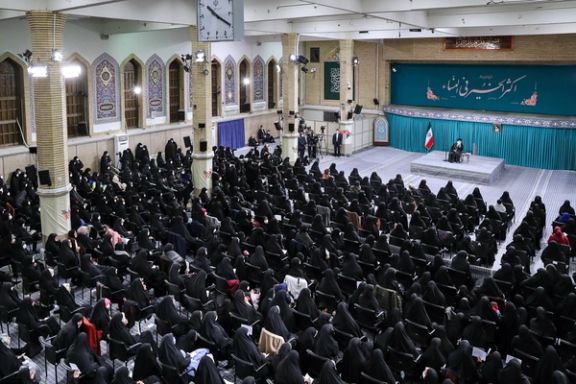
During the hour-long session, he almost exclusively talked about women and hijab but stopped short of stating his final opinion about how to enforce hijab in society, which could lead to more protests. Khamenei called hijab a religious must but added that those who do not wear “full hijab” should not be accused of irreligious. Describing hijab as the inevitable duty for all Muslim women, at the same time he emphasized that no Iranian woman should be labeled as non-religious or anti-revolutionary if she fails to fully honor the obligation.
He criticized the intermingling of men and women in Western societies, saying that contrary to the propagated notion, the coexistence has failed to diminish men’s carnal desires and has instead amplified it, resulting in women and girls being sexually harassed on streets, in workplaces, educational centers and even in military facilities. “Sex trade, sexual slavery, violation of all moral and humanitarian principles, and legalization of issues that are forbidden in all divine religions” are now widely prevalent across the West, Khamenei claimed. He failed to mention that all these problems exist also in Iran and “men’s carnal desires” are legalized in the Islamic Republic where they can legally have up to four wives and as many concubines as they desire.
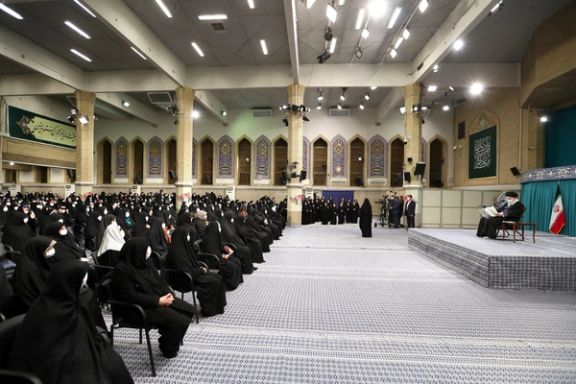
He also opted not to talk about the inequality of men and women in their basic rights. The Islamic Republic’s constitution clearly states that women are considered as inferior to men in terms of inheritance, testifying in courts and in many other areas according to the Islamic law or sharia. Women in Iran are not allowed to travel abroad without the permission of a male guardian, their share in inheritance is half of what male family members receive -- the financial compensation paid to survivors in cases of unnatural death, is also half of that of a man.
Khamenei tried to sound progressive by underlining the importance of employing efficient, experienced, knowledgeable, and wise women at various levels of Iran’s decision-making apparatus, but practically women hardly ever manage to be appointed for top jobs, let alone the jobs that are totally banned for women, such as becoming a judge. He pointed to motherhood and homemaking as the two main and primary roles of each and every woman.
In December, the Islamic Republic was voted out of the United Nations Commission on the Status of Women (CSW) for policies contrary to the rights of women and girls.
In its 2022 report on the Global Gender Gap Index, which was released in July, the World Economic Forum placed Iran at the rock bottom only after Afghanistan, Pakistan, and Congo.
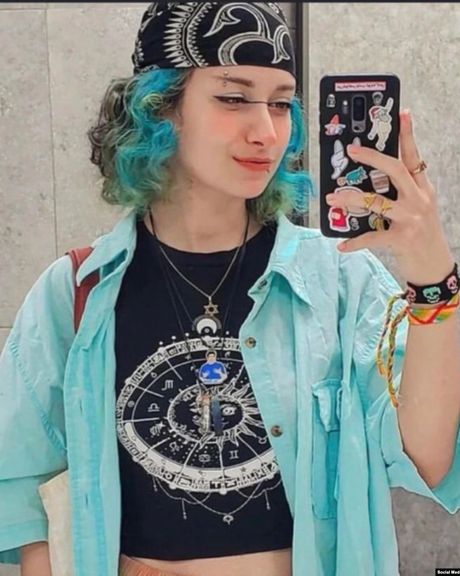
Amid increasing pressure on imprisoned protestors, the wave of hunger strikes in Iranian prisons is on the rise with the detainees’ health in danger.
Mohammad Reza Azhar, an 18-year-old teenager, who was arrested in the religious city of Mashhad in the northeast on September 22, said in an audio message that the blood vessels of his eyes were torn due to severe mental pressure.
Meanwhile, Armita Abbasi, and over a dozen other prisoners in Kachouie prison of Karaj, west of Tehran, have gone on hunger strike since Monday to protest the lack of attention to their indefinite detention, lack of access to lawyers and the danger of harsh verdicts.
Jasmin Haj Mirza Mohammadi, a 25-year-old citizen, who was sentenced to five years in prison has also refused to eat anything since Monday.
Hamideh Zarei, suffering from anemia and low blood pressure, is also on strike while her move is extremely dangerous for her health.
Another prisoner close to her said Hamideh was severely beaten while being arrested, adding that her court was held on December 29 through video call as she was not allowed to choose a lawyer.
On the other hand, reports say Farshid Nowrozi, an English literature professor at Mazandaran University, has been expelled for supporting protesting students.
However, the authorities of the Islamic Republic are still denying the bloody suppression of the protests. On Tuesday, Masoud Satayshi, the judiciary spokesman, called numerous reports about sexual harassment and rape of imprisoned women "lies”, saying no documents have been presented in this regard so far.